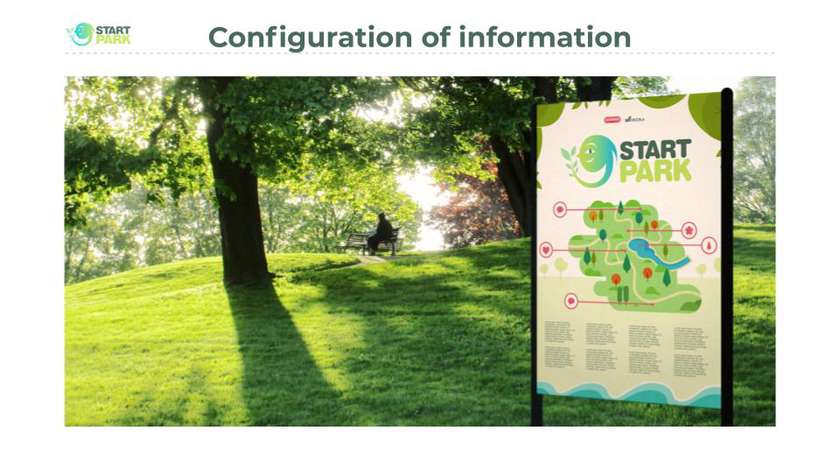Idea by
Rita Duina, Marco Berni, Alessia Menin, Anacleto Rizzo, Ely Pacchierotti, Stefania Rinaldi, Lorenzo Bittini
Start Park
https://codesigntoscana.org/462-2
Call for ideas 2020
Start Park
Start Park
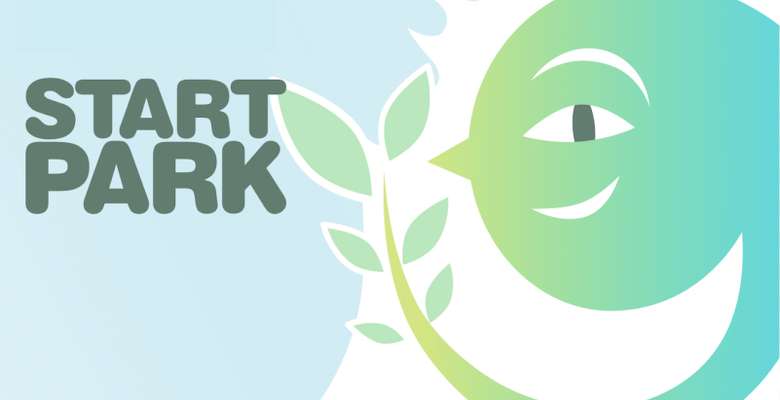
- New alliances
Start Park aims to broaden the role of environmental architecture in re-designing urban parks as outposts for adapting our cities to climate change. Collected through a two-years long research, the insights regarding climate change, urban resilience and active citizenship led our multidisciplinary collective to develop, thanks to co-design methodology and park users engagement, the Start Park concept: a Start Park is an urban green area whose infrastructure and services are dedicated to water reuse, drainage and characterized by experiential sensibilization and learning activities connected to climate change for the local community. Start Parks would be multi-objective, indeed. Beside preserving white and grey waters, it would enhance change thanks to mustisensorialy solutions with an educational aim and would imply the modularization of the vacuum to facilitate the co-design of multiple sustainable users’ colonization activities of the green area.
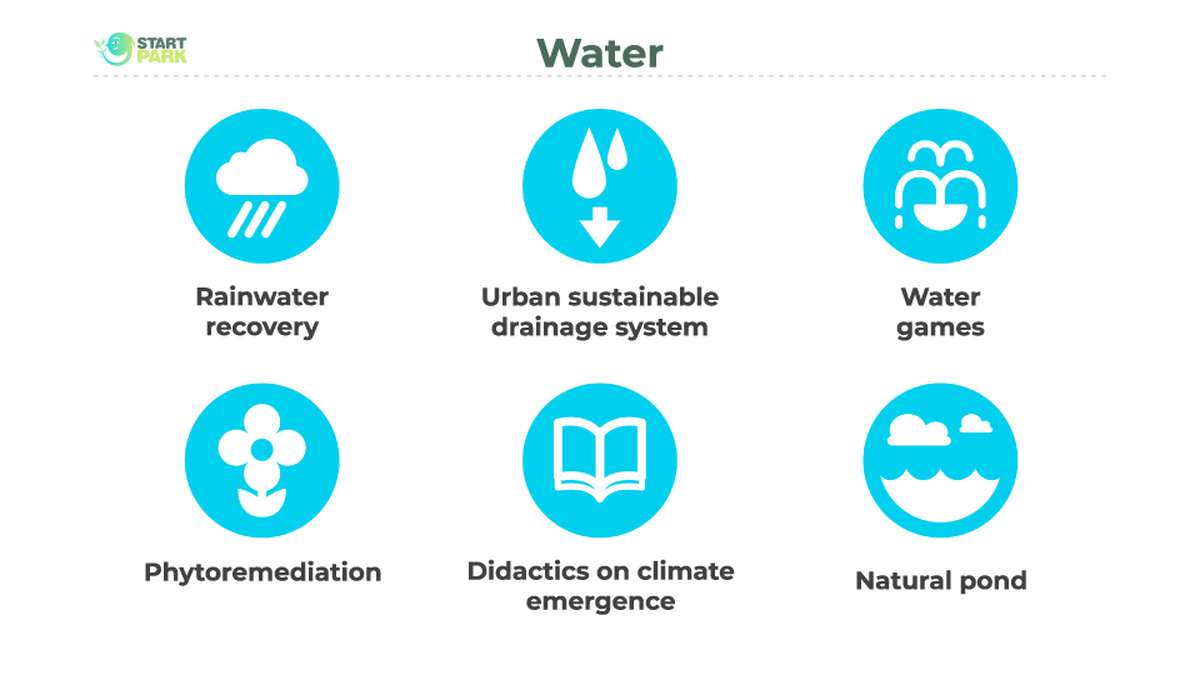
Role of water
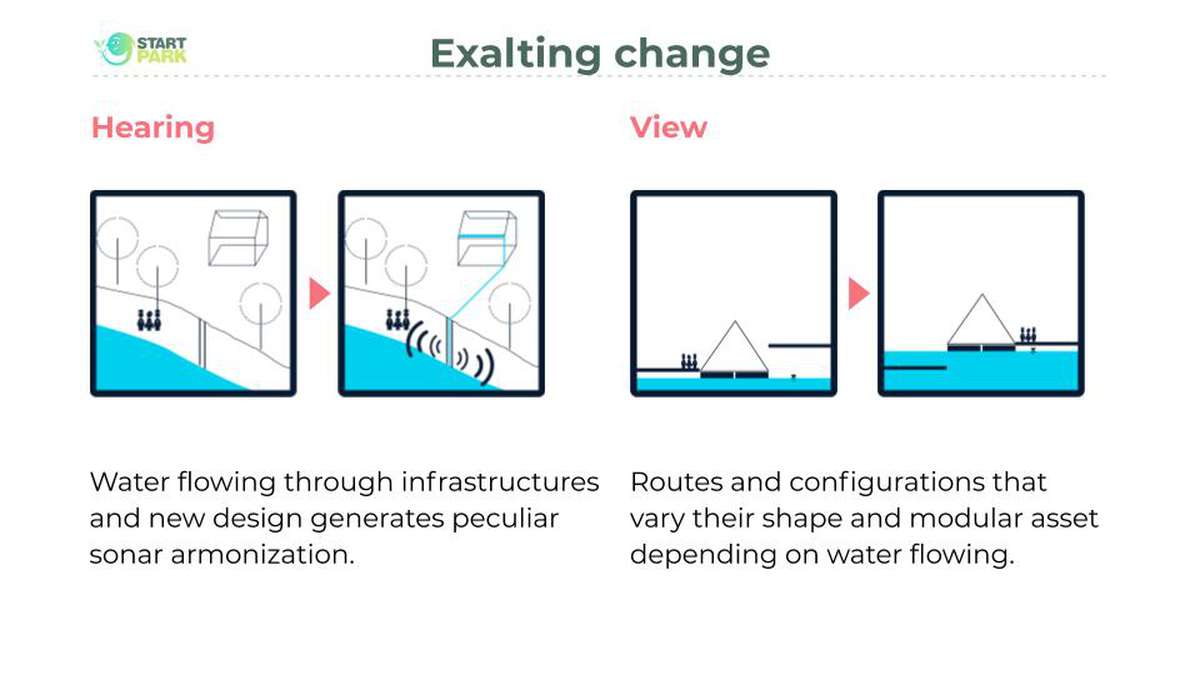
Modular architectures
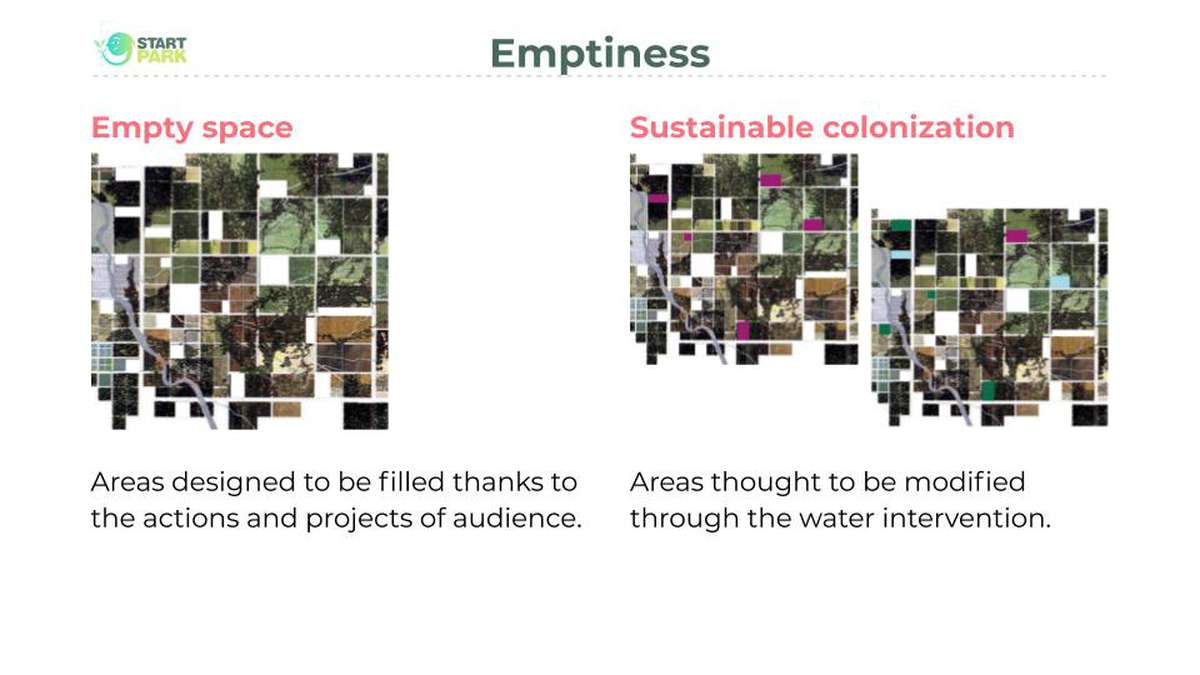
Sustainable colonization
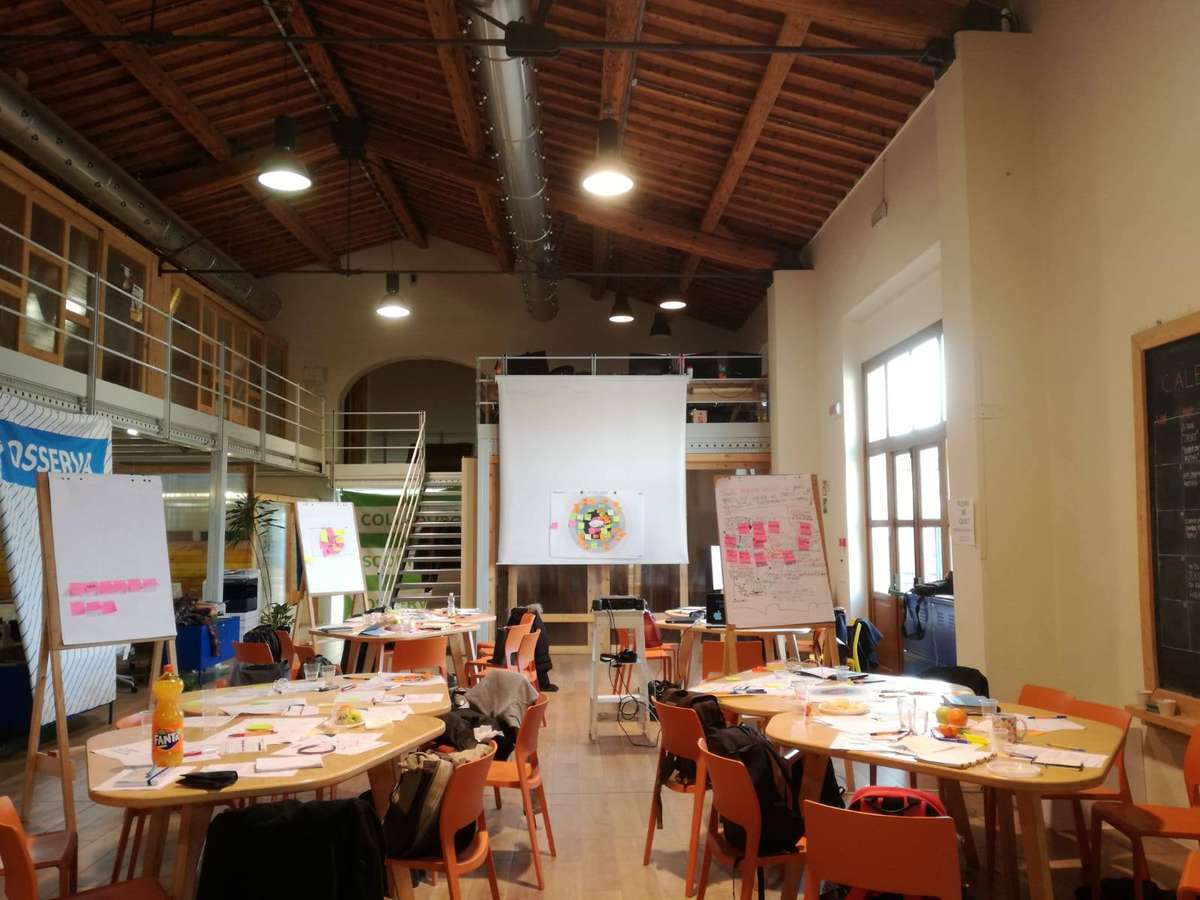
Creative energy in the hall
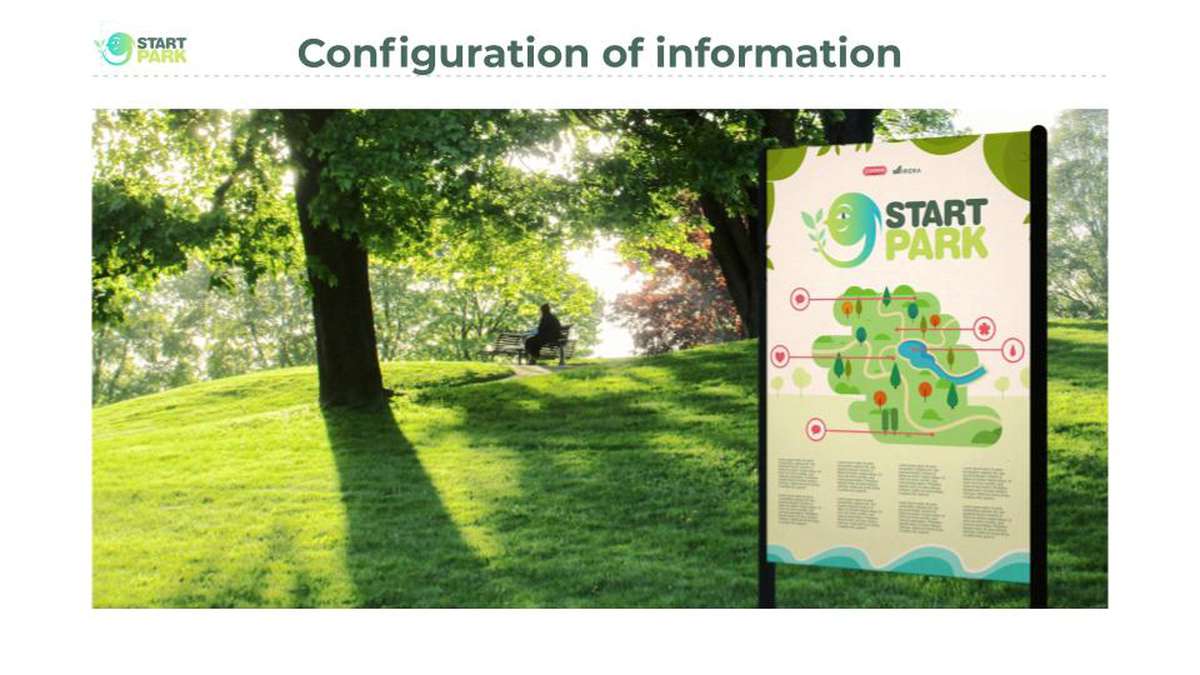
Start Park
Start Park

- New alliances
Start Park aims to broaden the role of environmental architecture in re-designing urban parks as outposts for adapting our cities to climate change. Collected through a two-years long research, the insights regarding climate change, urban resilience and active citizenship led our multidisciplinary collective to develop, thanks to co-design methodology and park users engagement, the Start Park concept: a Start Park is an urban green area whose infrastructure and services are dedicated to water reuse, drainage and characterized by experiential sensibilization and learning activities connected to climate change for the local community. Start Parks would be multi-objective, indeed. Beside preserving white and grey waters, it would enhance change thanks to mustisensorialy solutions with an educational aim and would imply the modularization of the vacuum to facilitate the co-design of multiple sustainable users’ colonization activities of the green area.
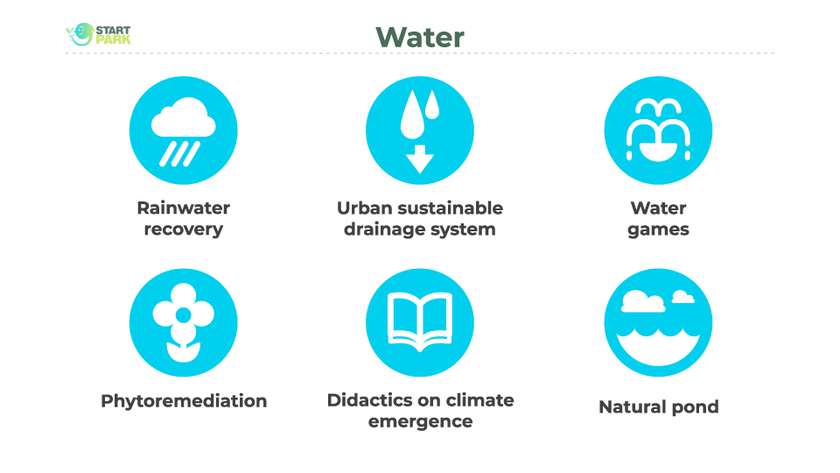
Role of water
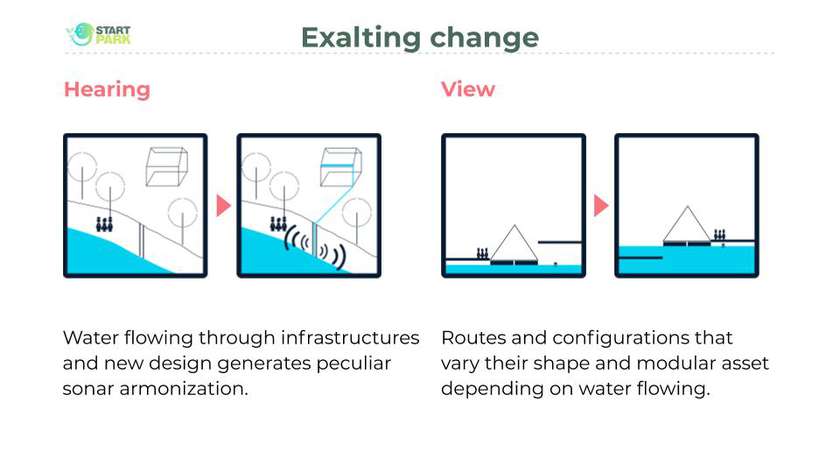
Modular architectures
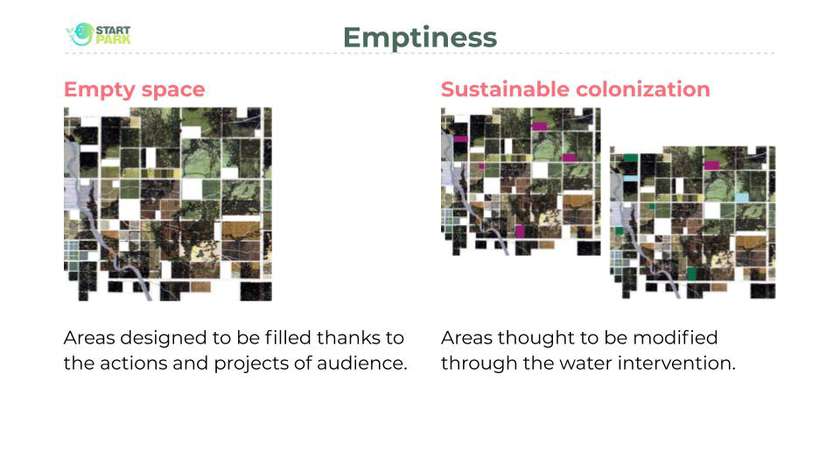
Sustainable colonization
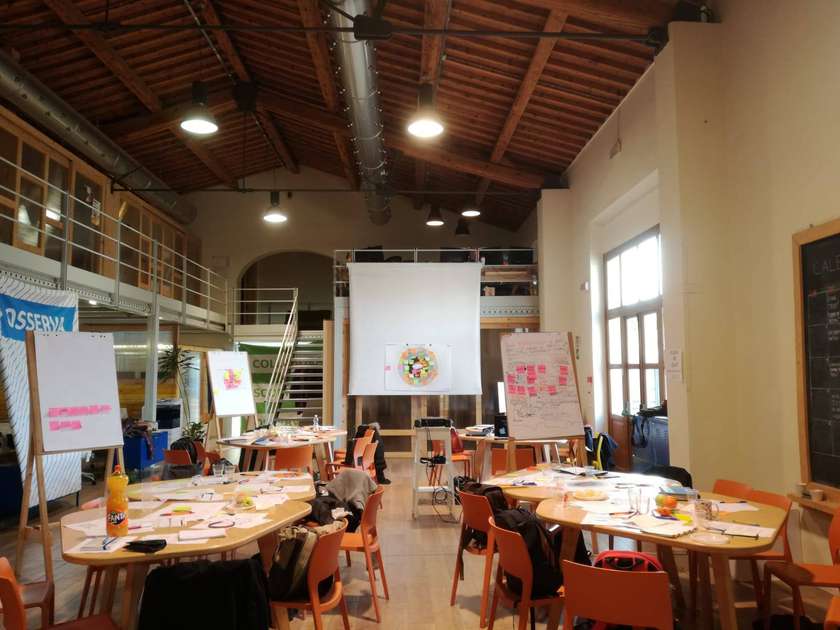
Creative energy in the hall
